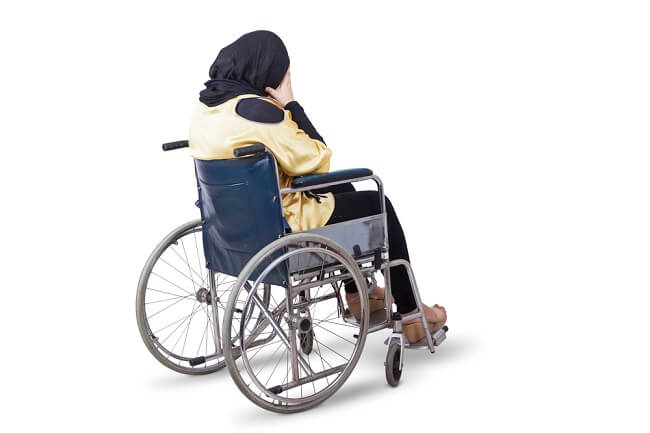Myomas during pregnancy generally have developed before pregnancy, but are only known during an ultrasound examination. Myomas, also known as leiomyomas or fibroids, are benign tumors that grow on the walls or sometimes on the outside of the uterus.
Just like fibroids in general, fibroids during pregnancy have varying sizes, from very small to very large sizes. However, fibroids are generally not associated with uterine cancer. Mioma can be found in 10% of pregnant women and often occurs in women aged 30-40 years.

Recognizing Symptoms of Myomas During Pregnancy
Myoma is a condition that is commonly found in women, and most women do not feel any symptoms, so they are usually only diagnosed when doing an ultrasound during pregnancy. Mioma can grow in the uterine wall, protrude into the uterine cavity, or protrude into the outer wall of the uterus in the pelvic cavity.
If before pregnancy fibroids did not cause symptoms, chances are fibroids during pregnancy also did not cause symptoms. Even if they appear, the symptoms of fibroids during pregnancy can vary. Symptoms usually depend on the size, number, and location of the myoma growth. Some of the symptoms of fibroids that can occur include:
- Feeling there is pressure or pain in the pelvic cavity
- Frequent urination
- Constipation
- Lower stomach pain
- Lower back pain
- Vaginal bleeding
In pregnant women, the size of the myoma can increase due to the influence of hormones during pregnancy. However, the size of myoma during pregnancy can also decrease for no apparent reason.
About 10–30% of women with fibroids during pregnancy may experience complications of pregnancy such as abdominal pain or light bleeding from the vagina. However, this rarely affects the condition of the fetus, except in cases of heavy bleeding.
there are certain conditions, fibroids during pregnancy may increase the risk of miscarriage and premature delivery. In addition, the presence of fibroids during pregnancy can also cause the baby to be in a breech position, so you are more likely to give birth by Caesarean section. Mioma can also increase the risk of postpartum bleeding.
Causes of Myomas During Pregnancy
The exact cause of fibroids is not clearly known, but there are several factors that can influence their formation, namely:
Hormone
Estrogen and progesterone are hormones produced by the ovaries. These two hormones cause the uterine wall to grow every menstrual cycle and can stimulate the growth of myoma.
Pregnancy
Increased production of the hormones estrogen and progesterone in the body during pregnancy can trigger the growth of new fibroids and accelerate the growth of existing fibroids.
Family history
The presence of other family members, such as mothers, brothers, sisters, or grandmothers, who have fibroids can increase a person's risk of experiencing it too.
How to Overcome Myomas During Pregnancy
If the results of the ultrasound examination found fibroids during pregnancy, the obstetrician will consider the appropriate treatment for your condition. As explained above, most fibroids do not cause symptoms and do not interfere with pregnancy, so they do not need special treatment.
However, you are advised to have regular ultrasound examinations, because fibroids during pregnancy can also enlarge and this can cause pain. If you experience abdominal pain during pregnancy, immediately consult a doctor.
If your pain is judged to be from a fibroid, you may be advised to:
- Reduce activity or rest completely in bed (bed rest).
- Compress the painful area with a cold compress.
- Take pain relievers prescribed by a doctor.
No need to worry too much about fibroids during pregnancy. The doctor will provide the safest treatment options and treatment methods for the health of your pregnancy. So, never take medication to treat the complaints you feel, without consulting your doctor first.
In addition, do regular pregnancy check-ups with your doctor to monitor your pregnancy, including the myoma condition you are suffering from, to prevent pregnancy complications.









